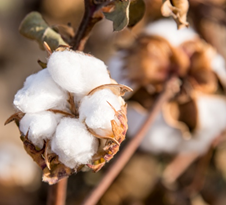Context
Recently, Haryana Government has issued a NOC (No Objection Certificate) to seed major Mahyco to conduct field trials on BG-2 RRF, which is an herbicide tolerant and insect resistant variety of BT cotton.
Key-points
- The NOC was granted last month for trials to be conducted during the coming kharif harvest season.
- Till date, India has allowed commercial use of BG-1 and BG-2 GM cotton in the country while the approval for the BG-2 is pending at various stages.
- BG-2 RRF can provide protection against devastating pest attacks such as American Bollworm.
- A few months ago, the union government had exempted certain types of genome-edited crops from the stringent regulations applicable on genetically modified or GM crops.
- In recent years, many countries have either developed or approved for commercial cultivation of vegetables, fruits, oilseeds and cereals developed through genome editing.
- Recently, China too has approved guidelines for genome editing that will spur research into crops that have high yields and are resistant to pests and climate change.
What are GM crops?
- Genetic Modification (GM) is a technology that involves DNA insertion into the genome of an organism.
- Genetic modification (GM) technology allows the transfer of genes for specific traits between species using laboratory techniques.
- A GM or transgenic crop is a plant that has a novel combination of genetic material obtained through the use of modern biotechnology.
What is BT cotton?
- BT cotton is a genetically modified crop that has been developed by the insertion of one or more genes from a common soil bacterium, Bacillus thuringiensis.

Advantages of BT cotton
- Increases yield of cotton due to effective control of three types of bollworms, viz. American, Spotted and Pink bollworms.
- Insects belonging to Lepidoptera (Bollworms) are sensitive to crystalline endotoxic protein produced by the Bt gene which in turn protects cotton from bollworms.
- Reduction in insecticide use in the cultivation of Bt cotton in which bollworms are major pests.
- Potential reduction in the cost of cultivation (depending on seed cost versus insecticide costs).
- Reduction in predators which help in controlling the bollworms by feeding on larvae and eggs of bollworm.
Issues
- Growing a BT crop is more expensive than the natural process.
- Environmentalists argue that the genetic modification process can disrupt the natural process of gene flow.
- The pests—for which the modification was done earlier—might become resistant to the toxins produced by these crops and the crop production might decline.
